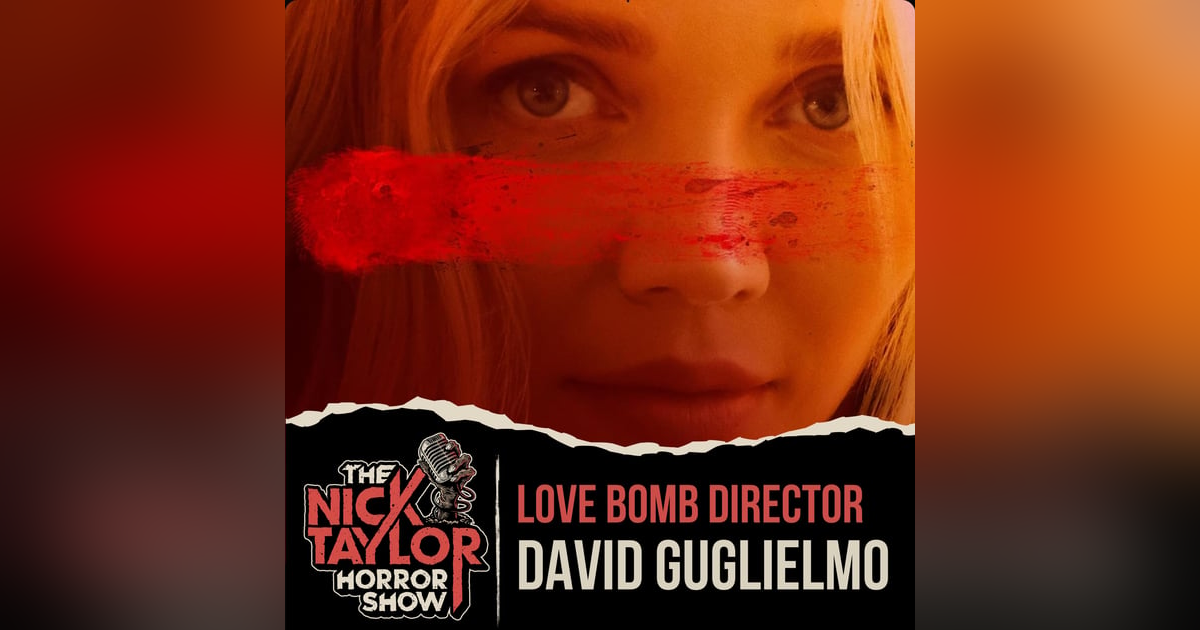LOVE BOMB Director, David Guglielmo

Today we’re joined by indie filmmaker and casting director David Guglielmo, who recently wrapped his latest film, Love Bomb. David shares his journey of directing a script written specifically for him by friend and screenwriter Kathy Charles. We explore the creative challenges of transforming an erotic thriller into a dark comedy with shades of Scorsese's After Hours, and how he crafted surreal, Lynchian tones to set the film apart.
David also dives into the real-world setbacks he faced on set, from revoked permits to floods, and how quick thinking and flexibility helped keep the production afloat. With insights on casting, creating a cohesive tone, and making the most of ultra-low budgets, David gives us a masterclass on indie filmmaking survival. This is David’s second time on the show so if you want more of his origin story be sure and check out Episode 11.
Here are some key takeaways from this conversation with David Guglielmo.
Flexibility on Set is Crucial:
David emphasized the importance of adaptability because he was forced to embody this to an extreme degree. When a neighbor caused their permit to be revoked, the production team had to pivot from a night shoot to a day shoot. Instead of panicking, David calmly rewrote scenes and embraced the changes, which ultimately added an interesting surreal vibe to the film. David has been on a lot of sets and faced a lot of setbacks, so his adaptability is very fluid—to the point where not only does he roll with the punches, but he also finds ways to make the setbacks work in his favor. This is like black belt-level directing. Best laid plans can come crashing down at any moment, which is why it’s critical to not only be resilient in the face of obstacles but to embrace them.
Stay Tuned In:
David noted that when directing, it’s important to remain tuned into the frequency of the project. This may sound metaphysical, but well-crafted movies have a specific frequency—whether you want to call it a tone, a spirit, or an energy, it’s foundational to the movie. As you go through the inevitable setbacks and sacrifices that come with filmmaking, it’s critical to remain tuned into that frequency because it can guide your decisions in favor of the movie. David also recommends making films that reflect your distinct sensibilities and experiences rather than chasing trends or formulas.
Invest in Crew Happiness:
Having made several ultra-low-budget films, when asked where filmmakers can afford to cut costs and where they should invest, David stresses that the well-being of the crew should never be compromised. A happy, motivated crew can make a significant difference in the film’s final outcome and your overall experience directing. The key to this is building a strong sense of camaraderie on set, which starts with transparency: letting the crew know exactly what they’re signing up for and setting realistic expectations from the jump. By doing so, you attract team members who are passionate about the project rather than just in it for the paycheck. David also believes in giving less experienced but talented crew members their first major opportunities, creating a collective enthusiasm and a willingness to go the extra mile.
Show Notes
Movies & Inspirations
- Love Bomb (David Guglielmo’s latest film)
- Castle Freak (remake, written by Kathy Charles)
- Jacob’s Wife
- After Hours
- Gone Girl
- The Hand That Rocks the Cradle
- Dressed to Kill
- Blow Out
- Body Double
- Death Proof
- It Follows
- Under the Silver Lake
Books
- Catching the Big Fish by David Lynch
Follow David Guglielmo at:
- IMBd: https://www.imdb.com/name/nm0961027/
- Instagram: https://www.instagram.com/davidaguglielmo/
- X (Twitter): https://x.com/DavidAGuglielmo







